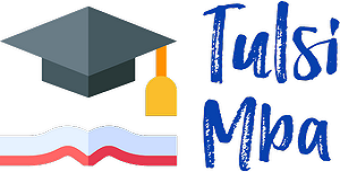Audiology is a specialized healthcare profession that focuses on the diagnosis, management, and treatment of hearing and balance disorders. Audiologists work with patients of all ages, from infants to the elderly, to help them improve their communication abilities and quality of life. If you’re interested in pursuing a career as an audiologist in the USA, this guide will provide you with a comprehensive overview of what you need to do to become licensed and practice in this field.
Step 1: Earn a Bachelor’s Degree
The first step in Becoming an Audiologist in the USA is to earn a Bachelor’s degree in a related field, such as communication sciences and disorders, biology, or psychology. This degree will provide you with a solid foundation in the sciences, as well as an understanding of communication and human behavior.
Some schools offer pre-audiology programs that prepare students for graduate-level audiology programs. These programs typically include coursework in anatomy, physiology, physics, psychology, and communication sciences and disorders.
Step 2: Earn a Doctor of Audiology (Au-D) Degree
To become a licensed audiologist in the USA, you must earn a Doctor of Audiology (Au-D degree from an accredited program. The Au-D. During your Au-D. In the program, you will learn about the anatomy and physiology of the auditory and vestibular systems, hearing assessment and diagnosis, auditory rehabilitation, and management of balance disorders.
You will also gain hands-on experience working with patients in clinical settings. There are over 70 accredited Au-D. Programs in the USA. To find a program that’s right for you, consider factors such as location, program length, cost, and clinical opportunities.
Step 3: Complete a Clinical Fellowship
After earning you’re becoming an Audiologist in the USA, you will need to complete a clinical fellowship before you can obtain your license to practice audiology. A clinical fellowship is a paid, full-time position that typically lasts for one year.
During your clinical fellowship, you will work under the supervision of a licensed audiologist and gain practical experience in all aspects of audiology practice. You will also have the opportunity to further develop your skills in areas of interest, such as pediatric audiology, cochlear implants, or tinnitus management.
Step 4: Obtain State Licensure
To practice audiology in the USA, you must be licensed by the state in which you plan to work. A doctoral degree in audiology from an accredited program:
Completion of a clinical fellowship
Passing scores on the Praxis examination
Proof of continuing education
Background check
To apply for licensure, you will need to submit an application, pay a fee, and provide supporting documentation, such as transcripts and clinical logs. Once your application is approved, you will be granted a license to practice audiology in that state.
Step 5: Obtain Certification
While certification is not required to practice audiology, it can demonstrate your expertise and dedication to the profession. The American Board of Audiology (ABA) offers the Board Certified in Audiology (BCA) credential to audiologists who meet their rigorous standards of knowledge and clinical expertise.
To be eligible for the BCA credential, you must hold a current state license to practice audiology, have at least five years of professional experience, and pass a comprehensive written and oral examination. The BCA credential is valid for eight years, after which time you must pass a recertification exam to maintain your certification.
Step 6: Join Professional Organizations
Joining professional organizations can provide you with valuable networking opportunities, access to continuing education resources, and a sense of community with other audiologists.
If you are interested in a career that combines healthcare, technology, and communication, becoming an audiologist might be the perfect fit for you.
Audiologists are healthcare professionals who specialize in the prevention, diagnosis, and treatment of hearing and balance disorders. They work with patients of all ages and backgrounds, from newborns to seniors, and help them improve their quality of life by managing their hearing and balance challenges.
In this comprehensive guide, we will cover everything you need to know about becoming an audiologist in the USA, including education and training requirements, licensure and certification, job prospects, and salary expectations.
Education and Training Requirements
The first step to becoming an audiologist is to earn a bachelor’s degree from an accredited university. While there is no specific major required for entry into audiology programs, most students choose to major in fields related to health sciences, such as biology, psychology, or communication sciences and disorders. After completing a bachelor’s degree, aspiring audiologists must earn a Doctor of Audiology (Au-D.) degree from an accredited program.
Au-D. programs typically take four years to complete, and coursework includes topics such as anatomy and physiology of the auditory and vestibular systems, diagnostic procedures, treatment options, hearing aids and other assistive devices, and professional ethics and standards.
In addition to classroom learning, Au-D. Students must also complete clinical rotations, where they gain hands-on experience working with patients under the supervision of licensed audiologists. Clinical rotations typically take place in a variety of settings, including hospitals, clinics, private practices, and schools.
Licensure and Certification
After earning an Au-D. Degree, aspiring audiologists must obtain a license to practice in their state. Each state has its licensing requirements, but most require applicants to pass a national examination, such as the Praxis exam, and complete a certain number of hours of clinical practice.
In addition to state licensure, many audiologists choose to become certified by the American Board of Audiology (ABA) or the American Speech-Language-Hearing Association (ASHA). Certification is not required to practice audiology, but it can demonstrate a higher level of expertise and commitment to the profession.
Job Prospects and Salary Expectations
The job outlook for audiologists is positive, with the Bureau of Labor Statistics projecting a 16% growth in employment from 2020 to 2030, much faster than the average for all occupations. This growth is due to an aging population that is more likely to experience hearing loss and balance disorders, as well as increased awareness and treatment of hearing-related conditions in young children.
As of 2021, the median annual salary for audiologists was $81,030, with the highest 10% earning more than $126,590 per year. Salary can vary depending on factors such as geographic location, type of employer, years of experience, and level of education and certification.
Continuing Education and Professional Development
As with any healthcare profession, continuing education and professional development are essential for audiologists to stay current with the latest research and technologies in the field. Audiologists can participate in continuing education courses and conferences, attend workshops and seminars, and join professional organizations such as ASHA or the Academy of Doctors of Audiology (ADA).
Audiologists can also pursue specialty certifications in areas such as pediatric audiology, cochlear implants, or tinnitus management, which can demonstrate a higher level of expertise and help differentiate them in the job market.
Conclusion
Becoming an audiologist requires a significant investment in education and training, but it can be a rewarding and fulfilling career for those who are passionate about helping others improve their quality of life. As an audiologist, you will have the opportunity to work with patients of all ages and backgrounds





